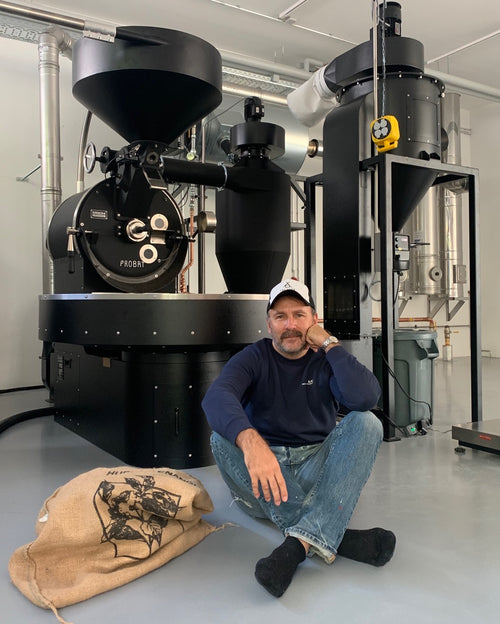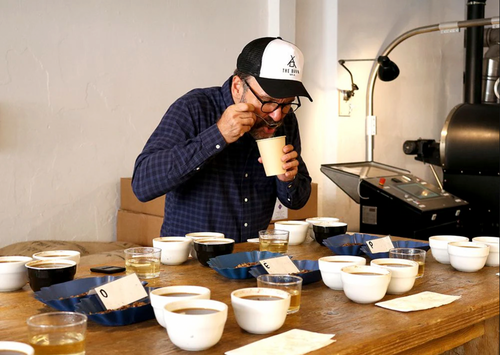
Over the past years we have moved our coffee portfolio to more honey and natural processed coffees. There are two key reasons for this move.
1. Processing by our farm partners is getting better. Producing clean flavor profiles in these coffees requires great attention and more labour intensity. The first is a learning curve, not only by the farmer but also the pickers and workers around. They have been going one direction for decades: fast, cheap and higher quantities. With us being at the opposite end (slower, better value and higher qualities), they need to shake off old habits and work a lot more precisely. Having a committed partner and price certainty with us, our producers are able to invest in their quality. It is one of our principles to present the terroir of each farm or micro-region. By that we mean that we do not want to taste the processing. We need the processing to bring out some of the bean taste properties, but not to take over. We found many natural samples presented to us to be tasting fermenty, muddled or simply processed. However, over the years we worked with our farmers to improve their processing style to create clean profiles. And so now we buy more and more of them.
2. Naturals & honeys are better for the environment. The level of water sources or traditional techniques set the base of what farmers typically do in their region. So in some countries, farmers traditionally do washed coffees (for instance: Kenya). In others, they do naturals (for instance: Brazil). With growing quality and working with specialty coffee standards, producers start experimenting with different processing techniques. The Ureña family in Costa Rica (El Guayabal) made it their principal not to use water in processing for environmental reasons. They only produce honeys and naturals. While this is great, we need to be aware that farmers are taking greater risks producing naturals. It requires high attention to detail and they depend on stable drying weather for 3-4 weeks. Which becomes more and more of a risk because of climate change.


MUCILAGE
In 2019 we bought two coffees that tasted absolutely fantastic: La Bandera natural and Los Acuna black honey – both from Costa Rica. These coffees passed our QC cuppings at various stages: 1- offer samples; 2- preship samples; 3- landed samples. In our production cupping, again both coffees passed based on their scoring and cup profile.
After roasting them we noticed that some of the beans had shadows – those beans looked as if they were overroasted. We tested cups including those beans next to cups where we had removed them. There was no obvious difference between the cups. The reason for those shadows was a higher level of mucilage on some of the beans. We discussed the issue with our farm partners and exporters: The beans with excessive mucilage are harder to detect in the sorting and dry milling. We cannot use optical sorters for honeys or naturals – they would simply take out too many healthy beans.


We instructed our partners for more thorough hand-sorting next season. This still leaves the possibility of some beans with an excess mucilage to not be removed. We do not want to reject these coffees because there is no real impact on the final cup. We did, however, add another layer of sorting after roasting: Our roasters do a visual screening of each batch while our coffees rotate in the cooling tray after roast. You may find some beans with shadows in our roasts – and that’s okay. We are keeping a close eye on everything.
Our cup quality and scoring is our principal measurement. We thoroughly enjoy our honeys and naturals – and we think they are the right direction in terms of environmental responsibility.
















